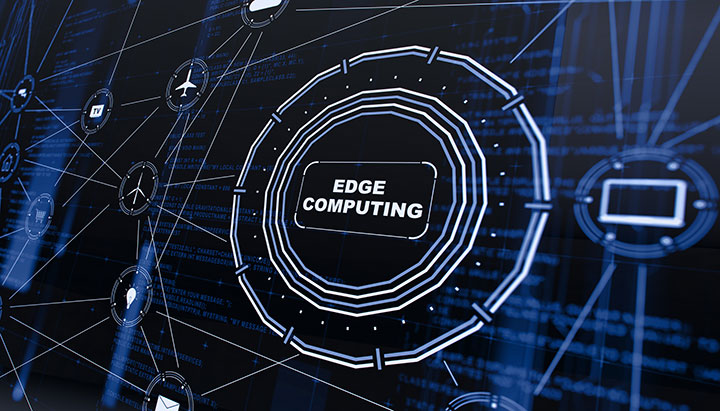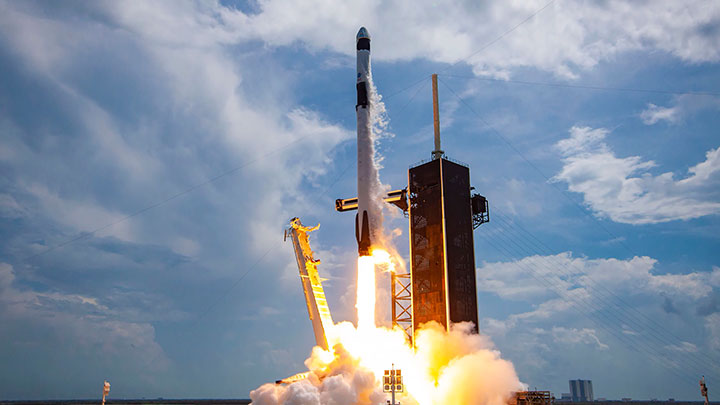
The indispensable role satellites are playing is having an impact far beyond the space industry.
To explore those implications, Constellations spoke with Sita Sonty, partner and associate director for aerospace and defense at the Boston Consulting Group about the outsized role satellites are playing in the economy, with new and expanding applications, as well as the need to preserve and protect them.
Sonty, who brings an extensive background from the space industry and as a diplomat in the U.S. foreign service, shared her perspective on how connectivity creates value and that satellites are the future of connectivity.
If covid underscored the importance of connectivity with contact becoming all but remote, the value of satellites won’t be just for Zoom, but as an enabling technology for all types of services and industries. In large markets from agriculture, to automotive and shipping, Sonty said, “We are increasingly going to depend on satellites for connectivity for automated vehicles, and for economic benefit in segments that are much greater than the space economy alone.”
Citing a report that valued the space market at $424 billion in 2022, Sonty explained that much of that was being driven by downstream revenue, with companies like Uber and DoorDash, smartphone makers, and telco providers all using connectivity and space-based data to provide services in unique and novel ways.
With an 8% year over year growth rate that outpaced the overall capital climate, Sonty said the need for data and connectivity was on an increasing trajectory and that satellite was in the best position to provide it over time.
She said it was inspiring to think that eventually a farmer in a remote rural location around the world will start their day, not by climbing into a tractor, but by logging into their laptop, uploading data to their tractor to deliver the precise amount of fertilizer, improving both their agricultural productivity and conservation.
Off-World Possibilities
Another opportunity Sonty said she was excited about was edge computing in space.
Just as data collection and storage has moved from servers to the cloud, Sonty sees that extending into space in 2023 and beyond. Satellites that send and receive data from the ground will also store it. Computer processors in orbit won’t need ground resources for power, they will use the sun, which will provide numerous benefits.
“When you require less energy, there's cost efficiencies, there's environmental benefit, and there's also just the fundamental economic long-term growth trajectory that we think is going to drive growth there,” Sonty said.
That type of “tangible evidence” that satellites will have in the markets will only heighten the need to preserve and protect them.
A More Peaceful Space
The increased dependence on satellites means they will need to be treated as critical infrastructure, Sonty said, and that she was seeing a shift in leadership and resourcing in the U.S. government to do just that.
She noted agencies on the civil or commercial side, such as the FCC, which voted to establish a Space Bureau, and the FAA, as playing an increased role in a robust inter-agency U.S. government effort to help set responsible norms in space for the international community. Similarly, the United Nations Office of Outer Space Affair is also bringing together international parties to expand those norms.

The Military/Commercial Equation
The military also recognizes the increased value of space. The recent war in Ukraine, in particular, has highlighted the game-changing nature of commercial satellite capabilities.
Sonty said the House Armed Services Committee and its markup of the NDAA last year sent “clear signals” calling for the increased use of commercial space technology and satellite data.
“There’s a recognition,” she said, that commercial off-the-shelf capabilities can provide government customers with more agile, cost-efficient solutions for secured and protected access to data, and on the other side, that commercial providers are looking to provide those more reliable solutions with cybersecurity in mind.
“You're seeing that dynamic on both the supply and the demand sides when it comes to government procurement of satellite services.”
Protecting the Future of Satellites with AI
With more dependence on satellites, Sonty was asked how the continuing explosive growth of constellations could be managed. She pointed to solutions being generated by AI as having an immediate impact. In particular, the ability to identify where space junk or debris might be in orbit, and modeling where and how a satellite would have to be moved for collision avoidance.
That prediction and auto-pilot maneuvering capability of AI is having an “immediate and meaningful impact in the space economy,” she said.
Looking into the future at other key issues, Sonty pointed to the need for equitable access to space-based technology. Not every country, nor its private sector, may be able to launch a constellation, yet the benefits and need to leverage good data were universal.
“If there's a flood in Pakistan, for example, you know what the weather imagery is telling you, and you can put predictive analytics on it to be able to prevent harmful outcomes to citizens,” Sonty said, adding that solutions will be designed around how to ensure equitable access to space data and technology.
To hear more on the future of space and satellites, from how investment decisions are increasingly taking into account more responsible, ethical and environmentally-focused considerations, to how multi-orbit, multi-constellation terminals will support continued satcom growth click here.
